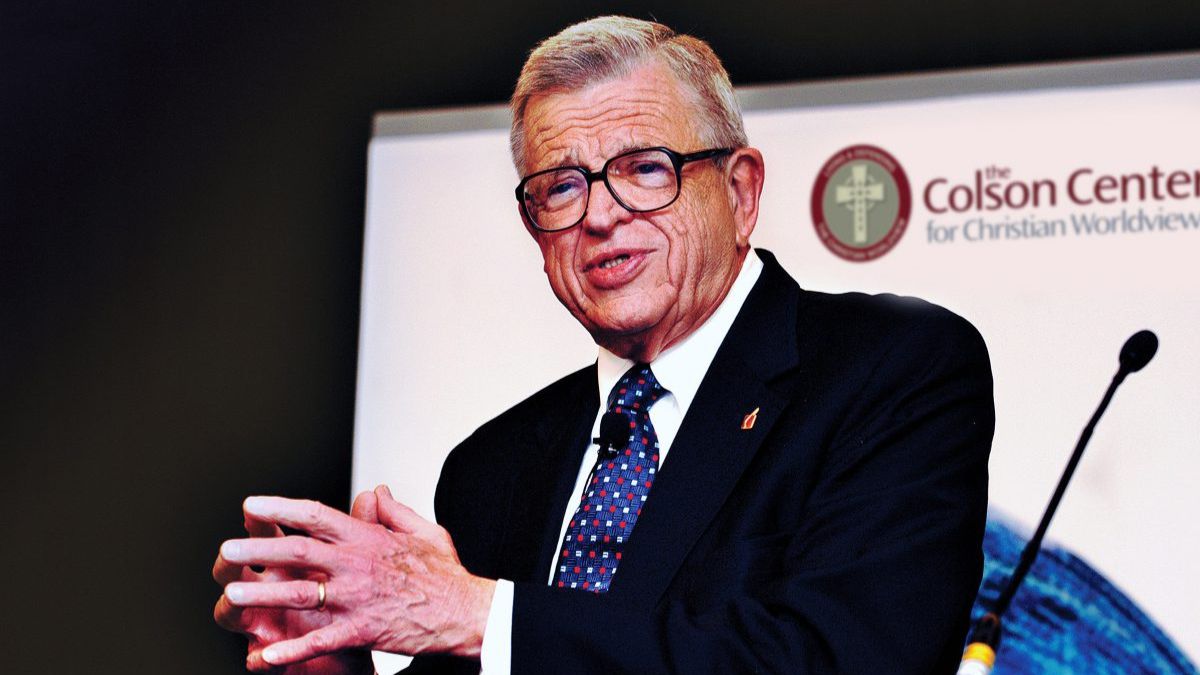

How Both “Death With Dignity” and Nazi Propaganda Redefine Compassion
Holocaust-era movie eerily resembles the expansive loosening of euthanasia laws in the name of human dignity.
07/10/23
John Stonestreet and Timothy D Padgett

A recent story out of the Netherlands reminds us, as the adage goes, that the road to hell is paved with good intentions. According to an article in the New York Post, the country, which has long led the world in legalizing and promoting euthanasia, has now expanded the reach of its angels of death to include those suffering from mental illness and even autism. Other countries are falling in line.
Two years ago, a World magazine article described how the practice of euthanasia is being embraced in Australia. Similar measures were expanded last year both across the Tasman in New Zealand and across the globe in Spain. Canada’s death laws are also being expanded to allow the mentally ill to die. Here at home, 10 U.S. states have “death with dignity” laws. Still, Holland and Belgium are at the front of this race to see how far a culture of death can go.
Every one of these laws is advanced by an appeal to compassion. We are told it is merciful to allow the ill to end their pain in death. Denying death to those who suffer robs human beings of their innate dignity and our future of “a happier world.” Death can be, the rhetoric goes, a gift of love. Couched in explicitly moral terms, euthanasia is offered as the only ethical choice, with any opposition portrayed as heartlessness and cruelty.
The word games played in the euthanasia debate would be impressive if they weren’t so evil. Words such as “illness,” “pain,” “compassion,” “mercy,” and “dignity,” are moving targets. It’s the same game played by some of the worst villains in history.
In 1941, the movie Ich Klage An (“I Accuse”) was released in Germany. In the film, the accused is a society and legal system that refuses to let a young woman die. Hanna Heyt, who suffers greatly from MS, wishes to end her pain. Her doctor refuses, but her scientist husband complies. He’s brought to trial for murder, only to level his own accusation against society for its heartlessness in the face of needless agony.
With a few stylistic edits and updated production, one could easily imagine this compassionate appeal for “death with dignity” hitting a theater or streaming service today. It’s all there: a fresh young face full of promise shackled by an incurable disease; an earnest plea for a merciful end to her suffering; a husband’s compassionate struggle to aid his love in getting what she wants by offering nuanced counsel to not only the trial judges but the entire culture’s supposedly cold heart.
Ich Klage An was produced at the behest of the infamous Joseph Goebbels and his Nazi Ministry of Propaganda with the goal of selling a euthanasia program targeting the chronically ill and disabled. Our idea of Nazi propaganda may be more like the goose-stepping hyenas of The Lion King, but this film was effective. As one commentator put it:
Ich Klage An comes across as a well-made, balanced melodrama. Unlike other propaganda films made during the time, there is little Nazi imagery or rhetoric. Yet dig a little deeper, it soon becomes apparent just how slyly and insidiously it pushes active euthanasia.
The movie was so compelling, in fact, the Allies banned it in 1945 for its role in enabling the Holocaust.
The same utilitarian view of human dignity advances so-called “death with dignity” laws in our age. Like the German extermination initiatives, these laws expand every time they are tried. The debate begins with those near death, quickly expands to those who are terminal, then to those with incurable disease, then to those with permanent conditions, then to the disabled, and finally to the depressed and mentally ill. First, consent is required. Then, it is implied. Finally, it is unnecessary.
The people who suffer around us deserve our compassion and care. They shouldn’t be told that their lives aren’t worth living or made to think that they’re somehow a burden on us or that they’re taking resources from those who need them. They aren’t Hitler’s Untermenschen just because they don’t live lives of perfect heath and prosperity. They are God’s image bearers, wholly deserving of life’s blessing amid life’s hardships.
Those who advance euthanasia and doctor-assisted suicide laws on the other hand should have to demonstrate just how their arguments differ from Nazi propaganda. If they cannot or will not, it is more evidence that this movement, expanding rapidly around the world, should be stopped.
This Breakpoint was co-authored by Dr. Timothy Padgett. For more resources to live like a Christian in this cultural moment, go to breakpoint.org.
Have a Follow-up Question?
Related Content

© Copyright 2020, All Rights Reserved.














